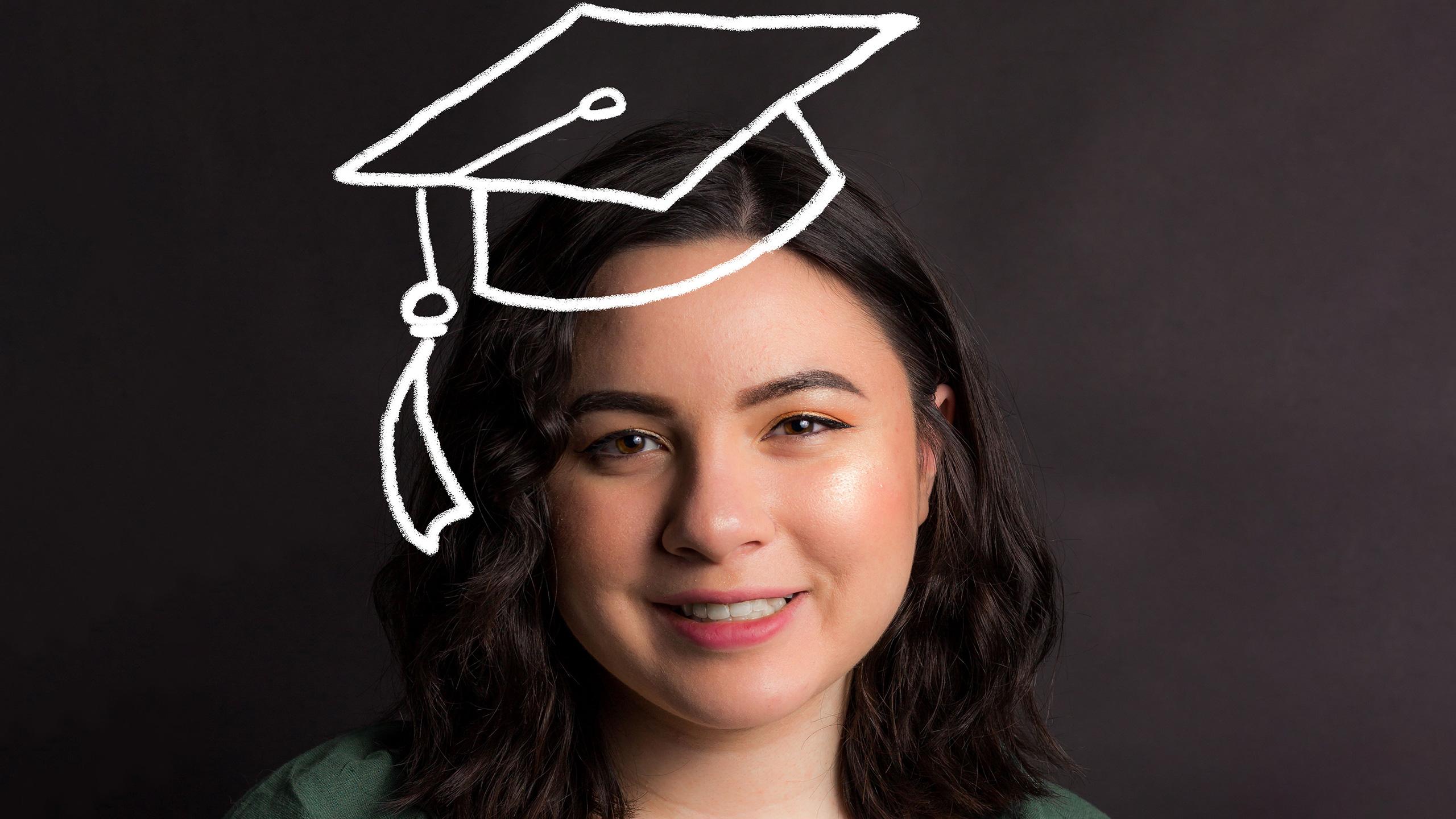By Catherine Abes
Last June, I graduated several times. The Ryerson School of Journalism uploaded a video congratulating my cohort and I on our achievement. Thanks to my last name being at the beginning of the alphabet, I only had to wait one minute and 41 seconds for it to come up on the screen.
The Faculty of Communication and Design held a Virtual Grad—a webpage with a message from the Dean and a slideshow with the names of every graduate, separated by faculty. Ryerson University also celebrated me in a day of livestream events that included custom graduate Zoom backgrounds, a digital address from Eric McCormack (a Ryerson grad of Will and Grace fame), and even a special pre-recorded message from Prime Minister Justin Trudeau.
“I know that this isn’t exactly what you had in mind when you thought of graduation day,” Trudeau said, with his perfectly coiffed hair never budging and his tie needing a tiny adjustment—but no, the graduates of 2020 are more urgent than that. “No kidding,” I said, lying on the couch in shorts and an old t-shirt, grateful that he couldn’t see me in real-time given the unflattering angle he would get from below my chin.
Graduating…can mean making it out of a system that wasn’t built with you in mind and doesn’t care to see you succeed
I could graduate every day if I wanted to. The videos are all available on YouTube. But it won’t feel real until I cross the convocation stage in person. As to when that will happen, though, I’m not sure.
According to Ryerson’s convocation website, “fall and spring 2020 graduates will be given the opportunity to cross the convocation stage. Once plans for 2021 convocation ceremonies are finalized in the coming months, the university will reach out to invite all of our 2020 graduates to participate in the upcoming ceremonies.”
This is the answer I give my parents when they periodically ask me if I know what’s happening with my graduation. I wish I could tell them something more, because my convocation is about their success as much as my own. My parents always hoped that I would be able to get a post-secondary education, saving for it since I was little and supporting me through the process. And while I was burnt out and bitter by the time I dragged myself across the finish line, my parents could still see my degree for what it was: an immense privilege, a gift and an achievement worth celebrating.
Both my parents remember their convocation ceremonies fondly and wanted the same for me. My mum bought me a red dress (with pockets!) to wear for the day. It came in the mail one week after Ryerson moved the rest of its winter 2020 semester online and still hangs in my closet. My dad, meanwhile, dug out his own degree from Ryerson—class of 1984—to compare with the one I eventually received in the mail (concluding that my outrageously expensive Ryerson frame was worth the aesthetic).
But convocation is more than the degree and the dress. For many students it’s symbolic of challenging and overcoming the systemic barriers that have made academia overwhelmingly white, male and exclusive to upper income families.
My convocation is about [my parents] success as much as my own
Our cover story this week speaks to first-generation graduates about the significance of convocation for their families. The story addresses the barriers to post-secondary: language barriers, lack of access to resources and information as well as funds and discrimination. Convocation symbolizes the challenges first-gen students overcome and what many immigrant parents dream of: a brighter and easier future for their kids.
Convocation can also be a personal triumph for students who’ve faced injustice in their undergraduate career. Just this year The Eyeopener has reported on Black, Indigenous and People of Colour feeling unsafe on campus and unseen within the curriculum; students with accessibility needs left to advocate for themselves; and the prioritization of “long-term economic health” over the needs of students. Graduating doesn’t just mean passing your classes: it can mean making it out of a system that wasn’t built with you in mind and doesn’t care to see you succeed. And that in itself is worth celebrating as well.
I understand that safety comes first now and that a large gathering will be out of the question for the foreseeable future. Postponing convocation ceremonies was a necessary step in preventing the spread of COVID-19. But Ryerson can’t break its promise to the class of 2020 and their families and should make the same commitment to the class of 2021—even if the actual ceremony happens a year down the line.
The university sure as hell makes us work for our degrees, so the least they could do is allow us to celebrate the end of them.













Leave a Reply